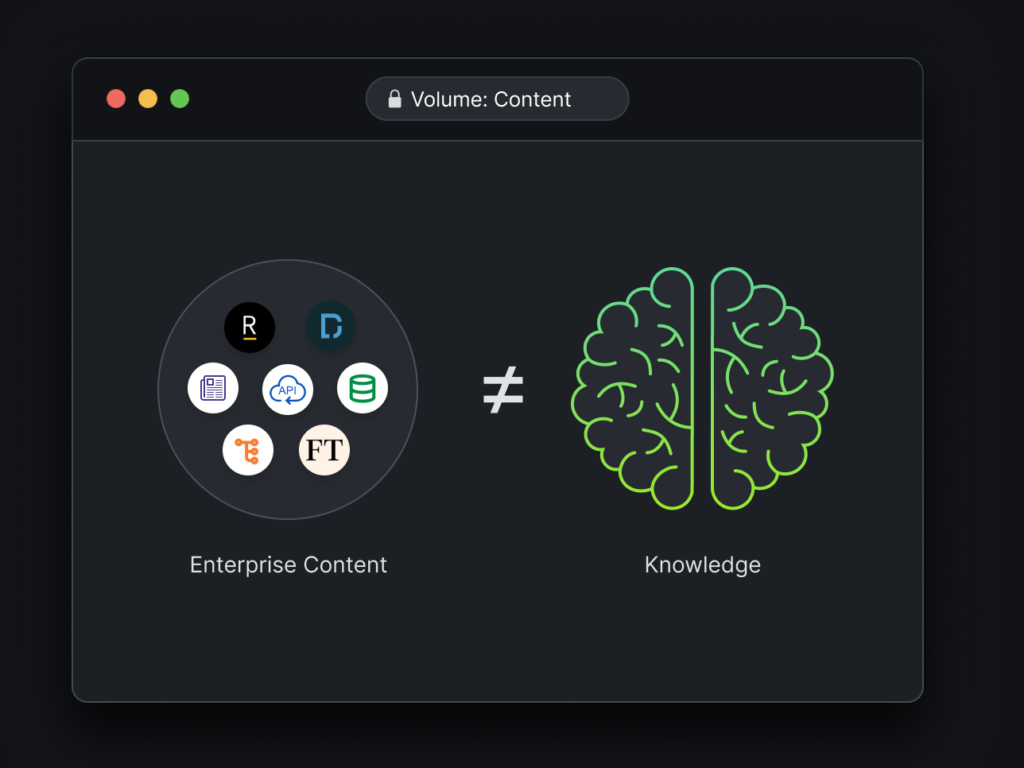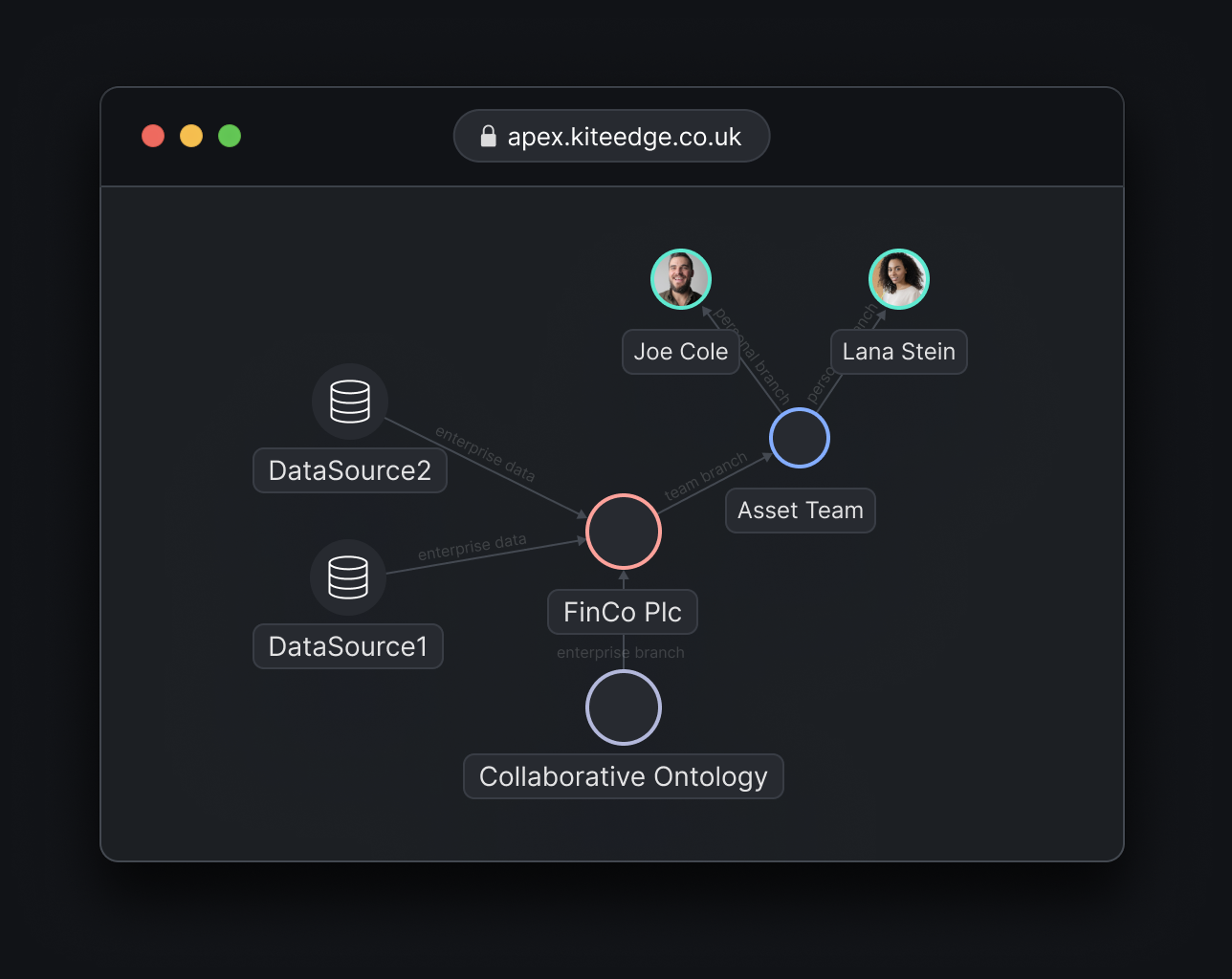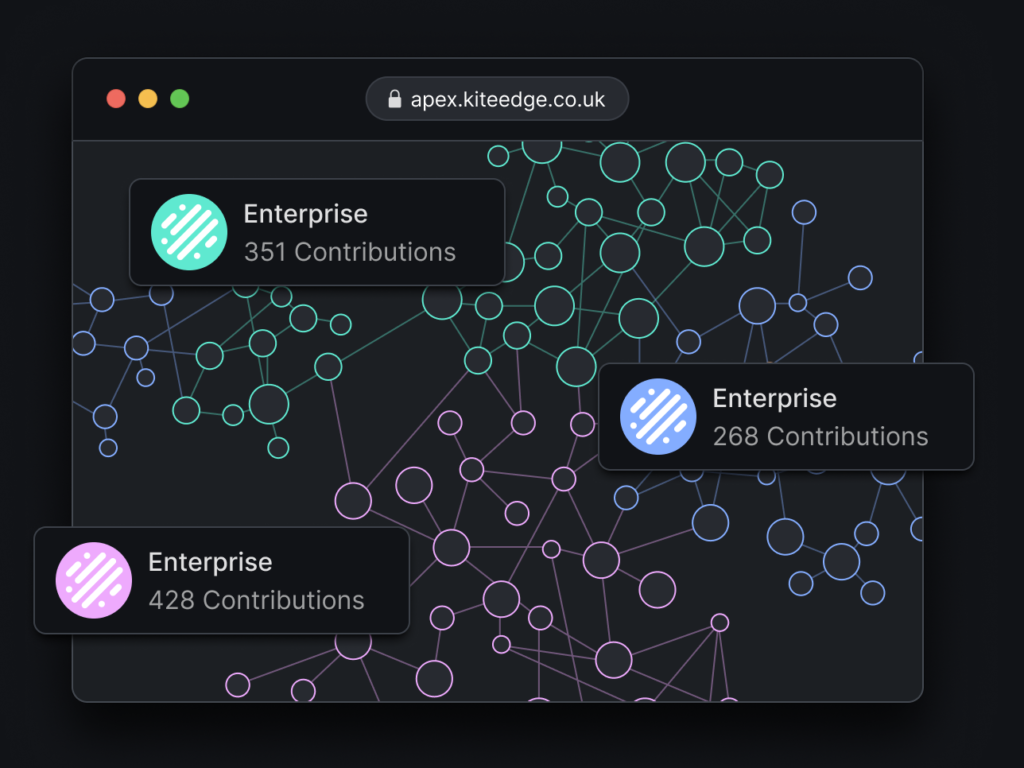Collective Grounding for Financial LLMs
A collaboration among members of the financial community to ground large language models with a common ontology, for more effective knowledge management.





Knowledge Management is something that many financial organisations talk about doing, but few do well

Poor Execution
The gap between ambition and execution is common, despite the fact that effective Knowledge Management (KM) can drive outperformance, by improving opportunity identification, internal cross-silo collaboration, innovation, risk management, operating efficiency, and other critical functions.
Incoherent Language
A key reason that KM efforts are not more successful is a lack of a coherent ‘language’ for KM. That is, different bodies of knowledge often remain unconnected, not only because they reside in separate silos (including different people’s heads), but also because shared concepts are never surfaced and explicitly linked.
Lack of Transparency
Large Language Models (LLMs) offer KM exciting and powerful opportunities. However, their black-box approach leads to concerns about reliability, interpretability and bias. To ensure responsible and effective use, efforts must be directed towards enhancing their transparency, as well as seamless integration with existing shared concept and classification approaches.
Grounding LLMs in a common ontology is the missing component to effective and trusted KM integration

Seed Ontology
Ontologies are multi-dimensional networks that encompass essential terms, ideas, relationships and establish a foundational framework for enhanced KM. A financial ontology can act as a ‘fact checker’ for LLMs, a way of grounding conversational answers in objective and symbolic industry ‘truths’.
Enterprise and Personal Branches
Ontology can serve as a valuable tool for enterprises to gain immediate value. They can be adapted either manually or dynamically with AI to align with existing systems and use cases to reflect unique values, beliefs and USPs.
Universal Translator
An ontology based on a common language can act as a translator that allows people, siloed data and systems to communicate and collaborate effectively, exchange ideas and deliver competitive advantage.
A collaborative ontology is better than going it alone

Shared Expertise
The knowledge landscape is intricate, complex and constantly evolving. When each member contributes their expertise and insights in exchange for access to others’ perspectives, the ontology becomes increasingly valuable and comprehensive.
Competitive Advantage
The Ontology Project establishes a unified framework, providing members with the ability to better navigate both the industry and their enterprise’s knowledge. This fuels more effective decision-making and allows members to gain a competitive edge.
Deeper Understanding
The Ontology Project grants the opportunity to more deeply understand how organisations are approaching KM, and to stay at the forefront of thinking on this rapidly evolving discipline. Participants are free to share or withhold knowledge/experience as they wish – but this project’s success is ultimately tied to an open exchange of ideas.
Frequently asked questions
Why should asset owners participate?
As part of their fiduciary responsibilities, asset owners should be concerned with not only how well they manage their own knowledge, but also how their external asset managers are handling knowledge (as the latter reflects whether they are genuinely 'earning their fees', along with how well their execution of strategies can match their stated mandates). Participating in the 'Ontology Project' gives asset owners insight into how asset managers are now conceptualising and performing KM, as well as helps asset owners to take an active role in setting norms and best practices. Furthermore, asset owners' participation in the 'Ontology Project' will put pressure upon their asset managers to be actively engaged and informed on the topic.
Why should my organisation join now?
Early participation means greater influence over addressing specific topics or knowledge areas that are priority concerns for your organisation. Those joining first will have the most say over the Project's trajectory, and realise earlier benefits to their own KM capabilities.
Why would competitors collaborate on the project?
A comprehensive financial ontology (like human language itself) is too complex and rich for any one organisation to construct on its own. Coordinated collaboration is required to build one, and the benefits to an organisation's KM programme from having it clearly outweigh any concerns over competition.
How is free-riding prevented?
A core principle of the 'Ontology Project' is fair access to the ontology: access should be proportional to contribution to it. KiteEdge will serve as a gatekeeper/steward in this regard.
Is building a common ontology the only outcome?
No. As a contributor you will also benefit from our active-learning community and hosted educational opportunities.
What are the first steps in participating?
Sign up on this page or talk to us directly.
Together... let's build better LLMs with a collective financial ontology
You can also reach us anytime via [email protected]